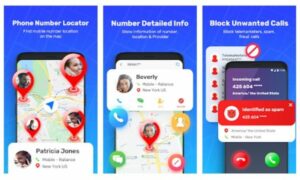Have you ever wondered about your “Bebak current location” and why it matters? In this age of advanced technology, knowing where you are at any given moment holds significant importance. Let’s dive into the world of location services and understand why keeping track of your current location is more than just a convenience.
Bebak Current Location
“Bebak current location” refers to the real-time geographical coordinates of an individual or a device. It is the instant information about where someone or something is located on the Earth’s surface. This could be determined using various technologies, including Global Positioning System (GPS), Wi-Fi, or cellular network data.

Why Knowing Your Current Location Matters
The need to know your current location goes beyond simple curiosity. In today’s fast-paced world, where time is of the essence, understanding where you are can make a world of difference.
Navigation has become an integral part of our daily lives. Whether you’re exploring a new city or just trying to find the nearest coffee shop, knowing your current location is the first step in getting there efficiently.
Additionally, the rise of location-based services and applications has revolutionized the way we interact with our surroundings. From food delivery to ride-sharing apps, the accurate identification of your location ensures seamless and personalized experiences.
How to Find Your Current Location
Fortunately, finding your current location has never been easier. Smartphones equipped with GPS technology have become ubiquitous, providing precise location information at your fingertips. Online tools and websites also offer quick solutions for determining where you are.
However, it’s crucial to be aware of the factors that can affect the accuracy of these services. Signal strength, interference, and the quality of the device’s GPS receiver all play a role in determining how precisely your location can be pinpointed.
Accuracy of Location Services
While technology has made great strides in providing accurate location data, it’s essential to acknowledge the limitations. Factors like tall buildings, dense urban environments, and even adverse weather conditions can impact the accuracy of location services. To enhance accuracy, users can ensure they have a clear line of sight to GPS satellites and enable additional location services on their devices.
Privacy Concerns with Location Sharing
As we embrace the convenience of location services, it’s crucial to consider the privacy implications. Sharing your real-time location with apps and services can pose risks, from potential tracking by malicious entities to unintentional exposure of sensitive information. Users must exercise caution and be mindful of their privacy settings to mitigate these risks.
Applications of “Bebak current location”
The applications of knowing your current location are diverse. Navigation apps help us reach our destinations efficiently, while emergency services can use location data to respond swiftly to crises. The ability to share location information has become a valuable tool for staying connected with friends and family.
While outdoor locations are generally easily identified, challenges arise when determining accurate indoor positioning. This becomes particularly crucial in crowded areas, shopping malls, or large buildings. Innovations in indoor positioning technologies are actively addressing these challenges.
Future Trends in Location Services
Looking ahead, advancements in technology promise even more sophisticated location services. From improved accuracy to new applications in healthcare and smart cities, the future holds exciting possibilities. However, with these advancements come challenges, such as addressing potential ethical concerns and ensuring data security.
Consider scenarios where knowing your current location is paramount. In emergencies, quick and accurate location information can be a lifesaver. Moreover, travelers can navigate unfamiliar territories with confidence, and delivery services can streamline operations with precise location data.
Exploring “Bebak current location” Tools
Numerous tools are available for users to explore and leverage their current location. From dedicated navigation apps to websites offering location-based services, individuals can choose the tools that best suit their needs. Understanding the features and functionalities of these tools enhances the overall user experience.
Beyond personal use, schools and educational institutions are incorporating location services into their strategies. From field trips to campus safety, knowing the current location of students and staff improves overall security and facilitates efficient planning.
Social Impact of Location Awareness
Location awareness isn’t just about personal convenience; it extends to community initiatives and awareness campaigns. In disaster response, for example, precise location data enables swift and targeted aid. Additionally, location-based initiatives contribute to building stronger, connected communities.
Businesses are increasingly utilizing location-based marketing to reach their target audience more effectively. By analyzing the location data of their customers, companies can tailor marketing strategies to specific regions, ensuring a more personalized approach.
Conclusion
In conclusion, understanding your “Bebak current location” is more than a technological feat; it’s a fundamental aspect of our modern lives. From ensuring efficient navigation to enhancing personal safety, the applications are diverse and impactful. As we embrace the convenience of location services, it’s vital to balance the benefits with privacy considerations and stay informed about the evolving landscape of location-based technologies.
FAQs
Is it safe to share my location with apps?
While many apps use location data responsibly, it’s essential to review and adjust privacy settings to ensure your information is secure.
How can I improve the accuracy of my device’s location services?
Ensure a clear line of sight to GPS satellites, enable additional location services, and avoid interference from tall buildings or other obstacles.
What are the potential future applications of location services?
Future applications include advancements in healthcare, smart cities, and improved accuracy for various industries.
How do schools use location services for educational purposes?
Schools use location services for activities such as field trips, campus safety, and efficient planning.
Are there any ethical concerns with the increasing use of location data?
Yes, ethical concerns include potential misuse of data and invasion of privacy. Users and businesses must address these concerns responsibly.